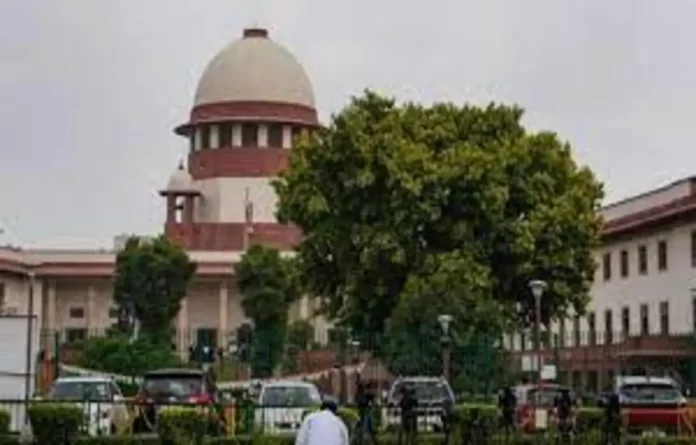The Supreme Court on Tuesday stated that the castes which have progressed by benefiting from reservation should compete with the general category and make way for those who are still lagging behind.
The seven judge Constitution Bench of the apex court began hearing the referred matter on the permissibility of sub-classification among the Scheduled Castes and Scheduled Tribe. The Bench led by Chief Justice of India DY Chandrachud also includes Justice BR Gavai, Justice Vikram Nath, Justice Bela M Trivedi, Justice Pankaj Mithal, Justice Manoj Misra and Justice Satish Chandra Sharma.
The Constitution Bench is also considering if exclusion of sub-classification within Scheduled Caste and Scheduled Tribes categories is invalid even when the same is permitted for the Socially and Educationally Backward classes categories.
During the first day of hearing, the CJI led bench remarked that the issue depends on how one defines efficiency. It added that if one defines efficiency in an inclusive sense, then the inclusion of people who have hitherto been excluded from governance promotes efficiency. It continued that putting people from the marginalised communities in important positions of responsibility itself is receptive to the needs of those communities and to the need for inclusion as a social doctrine.
Meanwhile, Punjab’s advocate general Gurminder Singh and the state’s additional advocate general Shadan Farasat argued in favour of subclassification within SC/ST communities to provide preference in quota to Balmikis and Mazhabi Sikhs. Shadan Farasat referred to Article 335, mentioning that it was not a limiting provision but an enhancing provision for reservation and also for sub-categorisation. He further argued that efficiency is contextual.
The Article 335 of the Constitution states that the claims of the members of SC/ST groups shall be taken into consideration consistently with the maintenance of efficiency of administration in the making of appointments to services and posts under the Centre or states.
To this, the bench responded that efficiency is a concept depending on how it is defined because the postulate of the Constitution is not that people who belong to the marginalised groups are inefficient and those who belong to other groups are efficient and therefore, having more of the reserved categories will detract from efficiency. It further added that it is consistent to maintain efficiency in administration.
Additional Advocate Shadan said diversity is essential for efficiency in administration, particularly in government offices because public officers are expected to deal with diverse groups of people.
During the hearing, Justice Nath asked Punjab’s advocate general whether the state was in favour of putting some of the subcastes within the SC/ST category outside the umbrella of reservation benefits if they have done consistently better and are on par with the unreserved categories. He stated that the SC/ST should come out of it and compete with the general, adding that those who are backward within the backward, should have the reservation.
In addition, Justice Gavai also stepped in to opine that within a particular backward class, when certain castes have reached a certain position and are on par with forward castes, they should move out.
The Supreme Court will continue hearing the case on Wednesday.


